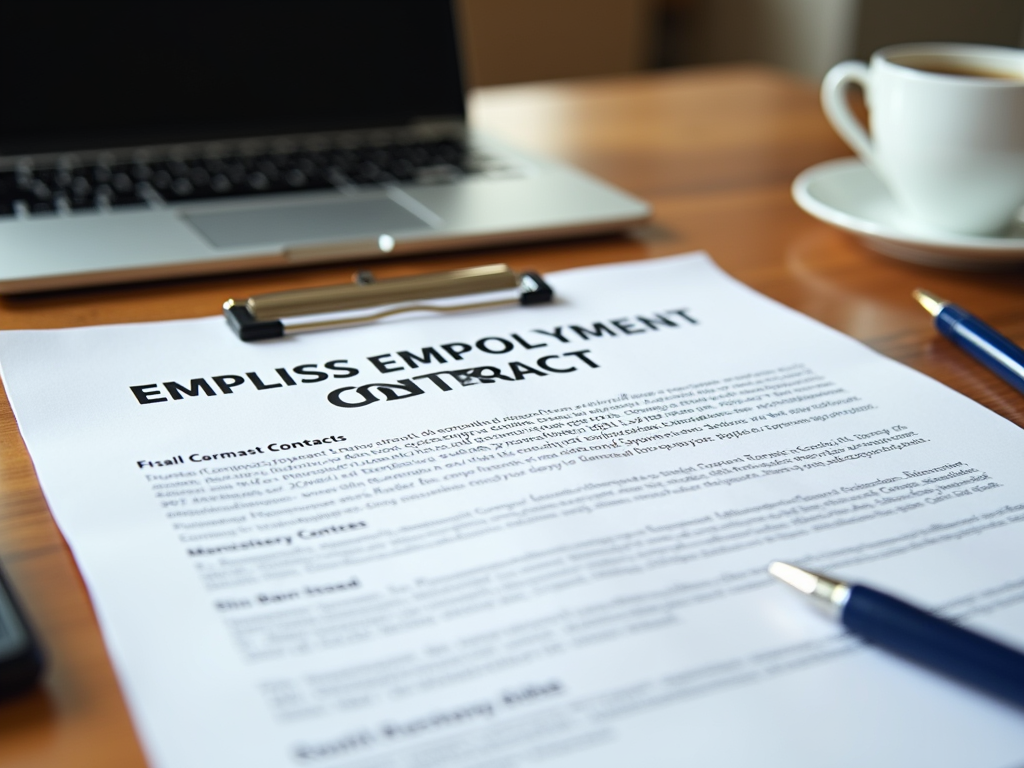Understanding Dubai’s labor laws is essential for both employers and employees due to the evolving nature of the workforce in this dynamic city. These regulations govern various aspects of employment, including contracts, workers’ rights, and dispute resolution. Familiarizing oneself with these laws helps prevent legal issues and ensures a fair workplace. In this article, we will explore key components of Dubai’s labor laws, providing insights that will be beneficial for anyone looking to work or manage a business in this vibrant city.
Overview of Dubai’s Labor Laws

Dubai’s labor laws are primarily governed by the UAE Federal Law No. 8 of 1980, which was amended to align with international standards and changing labor market dynamics. The law delineates the rights and responsibilities of both employers and employees, ensuring protection against exploitation and unfair treatment. Moreover, it addresses contract stipulations, working hours, leave entitlements, and dispute resolution mechanisms. Understanding these provisions is crucial for maintaining a harmonious work environment. Overall, the regulations aim to protect workers while providing a framework that supports business viability and economic growth.
Employment Contracts in Dubai

Employment contracts in Dubai must be documented and adhere to the guidelines set forth in the UAE labor law. The contracts can be either limited or unlimited in duration and must include essential elements such as job responsibilities, salary, working hours, and termination clauses. Here are key points to consider about employment contracts:
- Legal Registration: It is mandatory for all employment contracts to be registered with the Ministry of Human Resources and Emiratisation.
- Language Requirements: Contracts must be presented in both Arabic and the employee’s native language when necessary.
- Probation Periods: Employers can include a probationary period of up to six months, during which either party can terminate the contract with limited notice.
- Notice Period: The notice period for termination varies based on contract type but typically ranges from 30 to 90 days.
- Leave Allowances: Contracts should specify annual leave, sick leave, and other forms of leave as per the law’s stipulations.
Employee Rights and Benefits
Workers in Dubai are entitled to numerous rights and benefits, which are designed to promote welfare and safeguard their interests. Key rights include:
- Fair Wages: Employees must receive timely and fair compensation for their work, as outlined in their contracts.
- Working Hours: The standard working hours are capped at eight hours per day or 48 hours per week. Overtime must be compensated at a rate of at least 1.25 times the regular pay.
- Annual Leave: Employees are entitled to a minimum of 30 days of paid annual leave after completing one year of service.
- Maternity Leave: Female employees are entitled to 45 days of paid maternity leave, provided specific conditions are met.
- End of Service Benefits: Upon termination or resignation, employees are entitled to end-of-service gratuity based on their length of service.
Dispute Resolution Mechanisms
Disputes in the workplace can arise for various reasons, including contract misunderstandings or dismissal issues. Dubai has established mechanisms for resolving these conflicts effectively. The primary steps include:
- Internal Complaints: Employees should first address their grievances with HR or management.
- Mediation: If unresolved, mediation can be requested via the Ministry of Human Resources and Emiratisation.
- Formal Complaint: Should mediation fail, formal complaints can be lodged with the labor courts.
- Legal Representation: Employees may seek legal representation to ensure their rights are adequately defended during disputes.
- Arbitration: For certain cases, arbitration may be required before pursuing formal litigation.
Conclusion
Understanding Dubai’s labor laws is vital for anyone involved in the employment sector within the emirate. The laws provide a structured framework that benefits both employees and employers, fostering a fair and productive working environment. By familiarizing yourself with these regulations, you can avoid potential disputes and ensure compliance, allowing for better business operations and employee satisfaction.
Frequently Asked Questions
1. What is the minimum wage in Dubai?
As of now, the UAE does not have a universally mandated minimum wage; however, wages must be fair and meet the living standards for different job categories.
2. Are expatriates protected under Dubai’s labor laws?
Yes, expatriates are entitled to the same labor rights and protections under UAE labor laws as Emirati citizens, provided they have a valid employment contract.
3. How is overtime calculated in Dubai?
Overtime pay must be at least 1.25 times the regular hourly wage for work exceeding standard hours, with an increased rate during public holidays.
4. Can an employee resign during the probation period?
Yes, employees can resign during the probation period, but they must comply with the notice period outlined in their employment contract.
5. What happens if an employer violates labor laws?
If an employer violates labor laws, employees can file complaints with the Ministry of Human Resources and Emiratisation, leading to inspections and potential penalties for the employer.
